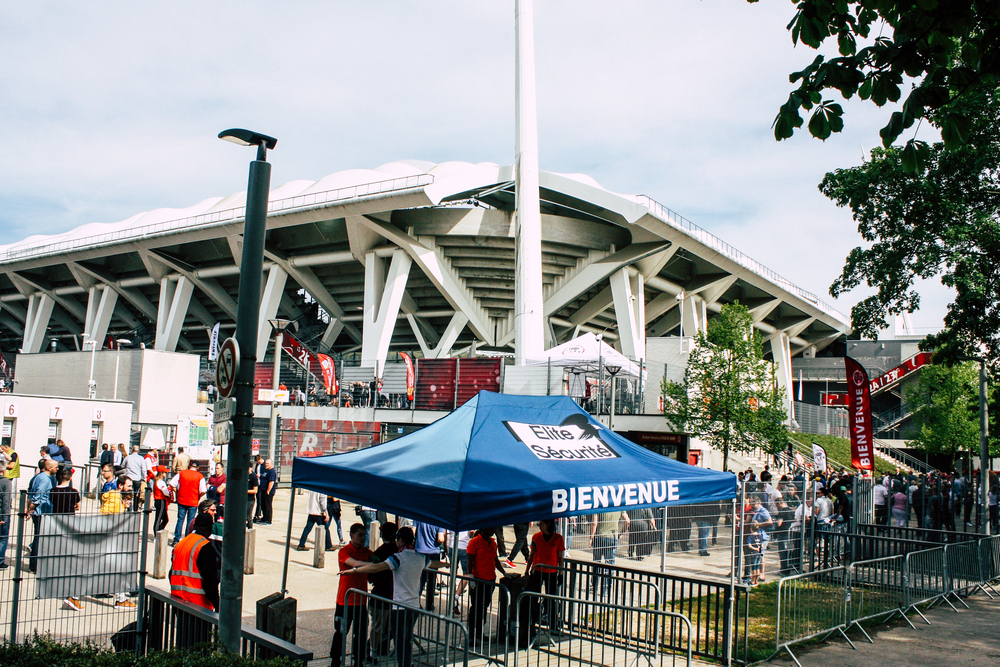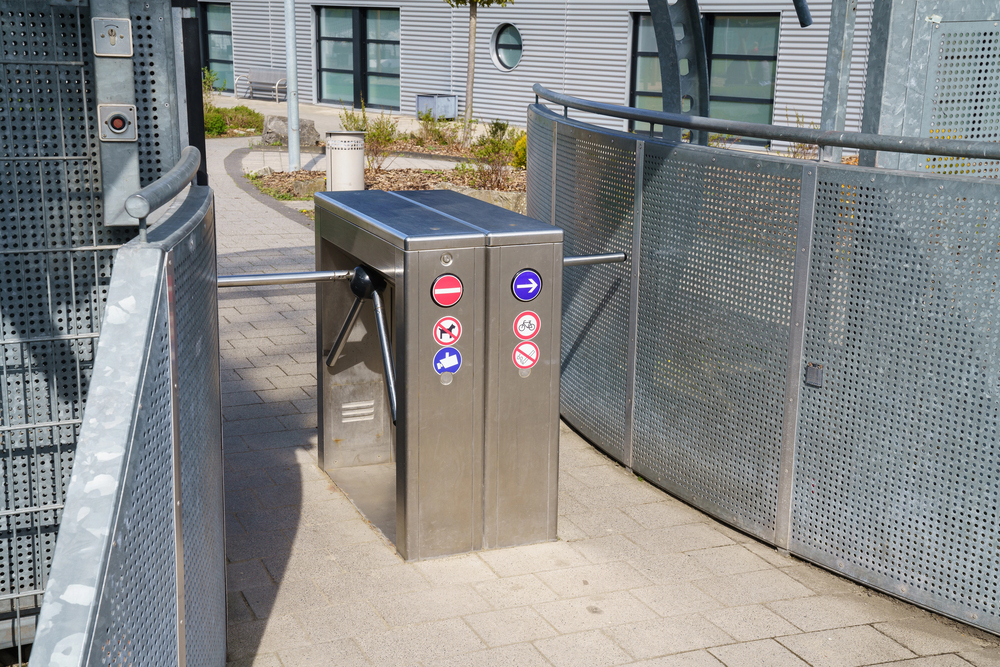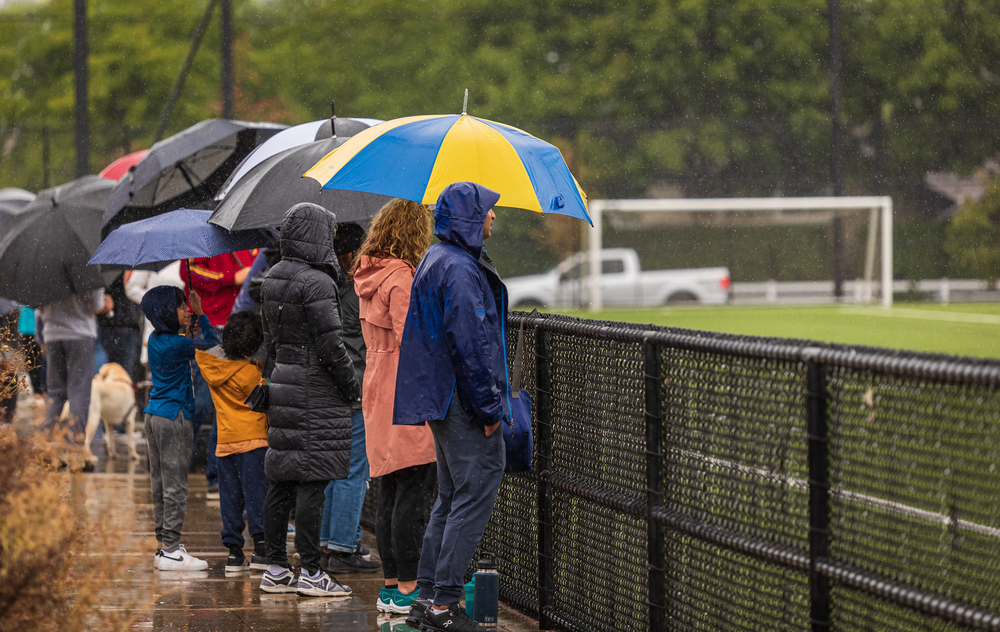There’s something electric about watching your team play on enemy turf. The hostile crowd, the unfamiliar chants, the nervous energy in the air — it’s sports fandom at its most intense. But visiting a rival stadium isn’t just about showing up and hoping for the best.
Smart sports travelers know that stepping into hostile territory requires preparation, strategy, and a healthy dose of common sense. Here are 16 essential tips that’ll help you navigate rival stadiums like a seasoned road warrior.
Buy Tickets from Official Sources

— Photo by monticello
Stick to the team’s official website or verified ticket partners like StubHub and Ticketmaster. Third-party sellers outside the stadium often peddle fake tickets that’ll leave you stranded at the gate. The extra few bucks you might save from a random guy on the street isn’t worth missing the game entirely. Plus, official sources give you buyer protection if something goes wrong. Always screenshot your tickets and have them ready on your phone before you reach the gate — some venues have spotty cell service that makes last-minute downloads impossible.
Arrive Early but Not Too Early

Getting there 90 minutes before kickoff hits the sweet spot. You’ll have time to find parking, grab food, and soak in the atmosphere without dealing with the absolute chaos that comes with last-minute arrivals. However, showing up three hours early as a visiting fan might make you a target for overzealous tailgaters who’ve been drinking since dawn. That 90-minute window also gives you a buffer in case public transit runs late or traffic gets heavier than expected.
Dress Down Your Team Pride

Wearing your team’s jersey is totally fine, but leave the face paint and foam fingers at home. Think business casual with team colors rather than full fan regalia. A simple team hat or subtle team shirt works better than a giant foam cowboy hat with your quarterback’s name on it. You want to show support without painting a target on your back. Dark colors like navy or black help you blend in better than bright team colors that scream ‘visiting fan’ from across the parking lot.
Research Stadium Policies

— Photo by jomahepu@gmail.com
Every venue has different rules about what you can bring inside. Some stadiums allow small bags, others have strict no-bag policies. Download the stadium’s app or check their website before you leave home. Nothing ruins game day like having to throw away a $200 jacket because it has too many pockets. Many stadiums now use metal detectors and pat-downs that make airport security look relaxed, so knowing the rules ahead of time saves everyone’s patience.
Use Public Transportation When Possible

Rival fans love to mess with visiting team cars in parking lots. Taking the subway, light rail, or team-sponsored shuttles keeps your vehicle safe and often gets you closer to the stadium anyway. Cities like Boston, Chicago, and San Francisco have excellent public transit that drops you right at the stadium doors. Plus, you’ll avoid the nightmare of sitting in traffic for two hours after the game while everyone tries to leave at once.
Sit in the Right Sections

Upper deck corners and end zones typically have the most intense home fans. If you’re looking for a calmer experience, aim for midfield sections or club levels where season ticket holders tend to be more focused on the game than starting chants. The lower bowl behind the visitor’s bench is usually safer but can be pricey. Corporate boxes and premium seating areas generally have better-behaved crowds, but you’ll pay extra for that civilized atmosphere.
Keep Celebrations Modest

When your team scores, a simple fist pump or high-five works better than jumping on chairs and screaming. Excessive celebrating makes you stand out and can turn friendly ribbing into something more serious. Save the victory dance for when you get back to your hotel room. Standing up and clapping is perfectly acceptable, but acting like you just won the lottery tends to annoy the locals sitting around you.
Bring Cash for Concessions

Many stadiums still operate on cash-only systems for some vendors, especially smaller concession stands. Having $40 to $60 in small bills prevents you from missing out on food or drinks because the card reader is down. Plus, cash transactions are faster when lines are long. Some venues also give cash discounts on merchandise, and you’ll need quarters for parking meters in older stadium districts.
Download Stadium Wi-Fi Apps

Most major stadiums offer free Wi-Fi, but you’ll need to download their specific app first. Do this before you arrive because cell towers get overwhelmed during big games. Having reliable internet helps you stay connected with friends, check scores from other games, and navigate the stadium layout. The apps often include interactive maps that show restroom locations and concession stand wait times, which come in handy during crowded games.
Plan Your Exit Strategy

Know where the visiting team buses park and which exits lead to public transportation. Leaving 5 to 10 minutes before the final whistle helps you avoid the worst crowds and potential confrontations in parking lots. Sometimes getting home safely matters more than seeing the last few plays. Study the stadium layout online beforehand so you’re not wandering around looking lost while thousands of disappointed home fans are filing out.
Pack Light and Smart

A clear bag with essentials works better than trying to sneak items past security. Bring phone chargers, any necessary medications, and maybe some cash for parking. Leave anything valuable at your hotel — you don’t want to worry about losing expensive items in the chaos of a big game. Portable phone chargers are worth their weight in gold since you’ll be taking photos and videos all day long.
Study the Local Fan Culture

Reading up on rival team traditions helps you avoid accidentally doing something offensive. Don’t wear the opposing team’s retired numbers, avoid sitting in legendary fan sections, and learn which chants are off-limits to visiting supporters. When in doubt, observe before participating. Some stadiums have specific rituals or songs that only longtime fans should attempt — jumping in too eagerly can mark you as an outsider trying too hard.
Choose Your Battles Wisely

Some trash talk is part of the experience, but know when to walk away. Engaging with drunk fans who are clearly looking for trouble rarely ends well. A simple ‘good game’ or ‘your team played well’ can defuse tension better than trying to out-argue someone who’s been tailgating since sunrise. Stadium security tends to side with home fans in disputes, so avoiding confrontations altogether keeps you from getting escorted out.
Book Accommodations Strategically

Save cash and have a wider variety of dining options within walking distance by staying at hotels located close to public transportation rather than staying right next to the stadium. Also, hotel rooms that host fans for match days can turn into loud and lively areas when you may actually want to relax after a game. The airport hotels are great for Sunday games, where you can catch an early Monday flight without the downtown hassle.
Bring Layers for Weather

— Photo by Elenaferns-photo
Stadium weather can change quickly, especially in open-air venues. A light jacket that you can tie around your waist beats freezing through the fourth quarter. Check the forecast, but also remember that stadiums near water or in elevated areas can be significantly colder than the surrounding city. Wind patterns in large stadiums create their own weather systems, so what feels comfortable in the parking lot might be miserable up in the seats.
Connect with Other Visiting Fans

Look for other people wearing your team’s colors and stick together when possible. There’s safety in numbers, and you’ll have more fun sharing the experience with fellow fans. Many teams have official fan clubs that organize group travel to away games — these groups know all the best practices for visiting hostile venues. Social media groups for your team often coordinate meetups at local bars before games, giving you instant allies in enemy territory.
The Road Warrior’s Reward

— Photo by dawesign
Walking into a rival stadium is a true test of faith among the casual fan. Away games give you knowledge not just about your own team and its rivals but also about the culture of the sport itself. The memories you create in hostile territory often become the stories you tell for decades. The memories you create in hostile territory often become the stories you tell for decades. Whether your team wins or loses, you’ll have earned something that fair-weather fans never experience — the respect that comes from supporting your squad no matter where they play.
More from Travel Pug

- 20 Best Beach Towns in the Carolinas
- 13 Destinations Where Tourists Regularly Regret Their Trip
- 20 Things You Actually Get in First Class
- 20 Small Airports With Aviation Museums
- 20 Places in the U.S. That Are Perfect for a Reset Trip
Like Travel Pug’s content? Follow us on MSN.
